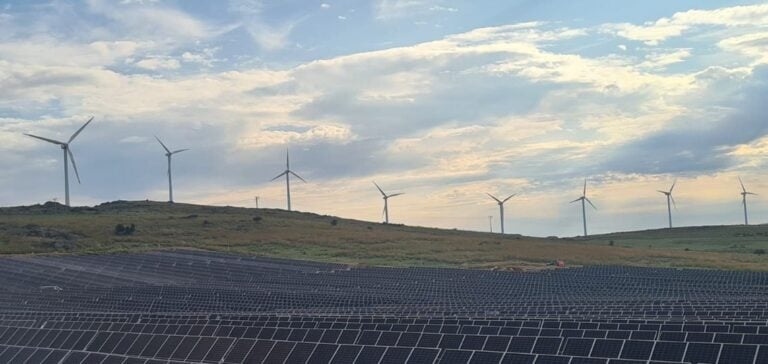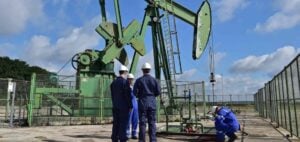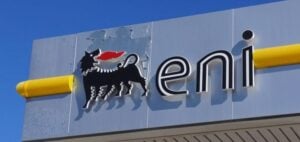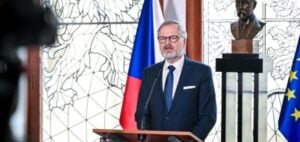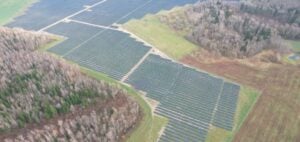EDP steps up its operations in Spain with the commissioning of three hybrid farms.
These installations, combining wind and solar technologies, reach a total capacity of 103.35 MW.
This strategic initiative enables the company to maximize energy efficiency while optimizing existing infrastructures.
The sites concerned, located at Cruz de Hierro (Ávila), Villacastín (Segovia), and Castillo de Garcimuñoz (Cuenca), demonstrate EDP’s ability to integrate new technologies into parks already in operation.
Adding solar capacity to these existing wind farms means a significant increase in energy production, up to 40% in some cases.
This meets growing energy needs while making more efficient use of available resources.
This type of hybrid project offers an effective solution for boosting production without the need for costly and time-consuming new infrastructure.
Hybrid capacity: an expansion lever for EDP
In Spain, these three projects represent a development model that the company plans to replicate on a larger scale.
Using existing connection points not only reduces costs, but also speeds up the commissioning of new capacity.
This approach is particularly advantageous in a context of increasing regulatory constraints and environmental requirements.
By expanding its portfolio of hybrid capacities, EDP is strengthening its position in the European market.
In addition to Spain, the company has already commissioned two hybrid farms in Portugal, totalling 63.2 MW, and operates a hybrid park in Poland with a capacity of 124.5 MW.
In total, EDP now has 0.3 GW of hybrid capacity installed in Europe, consolidating its pioneering role in this field.
EDP’s ability to integrate these technologies into current projects underlines its technical expertise and capacity to anticipate market needs.
This model could become an industry standard, offering a viable alternative to traditional approaches to renewable capacity expansion.
A coherent European strategy
EDP plans to continue this expansion, with the aim of adding over 750 MW of hybrid capacity in the coming years, particularly in Spain and Portugal.
This strategy is part of a broader plan to develop renewable energies, with a particular focus on optimizing existing infrastructures.
The growth in hybrid capacity, combining wind and solar power, will enable EDP to meet today’s energy challenges while strengthening its competitiveness in the European market.
The company remains focused on integrating innovative technologies to maintain its lead in the sector, while responding effectively to the energy requirements of the countries in which it operates.

